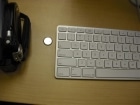By Zack Barangan
First things first: ditch the urge to Google everything. It’s not going to help you that much grade-wise, and it sure won’t help you retain any knowledge. It’s easy to just copy and paste from sites like Wikipedia and finish your final paper in an hour-and-a-half flat, but you know you’re better than that, so why not put in some extra effort? Doing good research is all about preparation, approaching a project with a plan and executing that plan. Sound complicated? Well, it’s not.
Practice Makes Perfect
The first step toward researching well is having good study habits, and when it comes to studying, consistency is key. Yes, unfortunately that means keeping up with the readings and taking notes in class. Knowing the subject matter will make the time you spend on research more efficient. It’s also a surefire way to get a head start on your fellow students when finals time rolls around. Your ten-minute attention span is no longer an excuse: Some studies show that the best way to retain information is by studying in small doses during the day. This may seem tedious and, at times, needless. But think of it like this: Pro athletes run drills and plays in practice hundreds and hundreds of times to perfect their skills. The same mentality rings true for academics. You’re just preparing yourself for game time–also known as papers, projects, and finals.
The Internet Arsenal
Here’s the good news: You’ve got at your fingertips access to practically unlimited information and the opinions of numerous geniuses and academics. The bad news is the thin line between utilizing the Internet as a valuable resource and plain old plagiarism. There is a right way to use the Internet without pissing off your professors. Wikipedia is good if you’re looking something up in order to settle a bet, but not so much for a research paper. Instead, try using databases like Lexis-Nexis, Factiva, and JSTOR. Lexis-Nexis searches newspapers and magazines, as well as legal documents, which will give you access to the vaunted primary sources that your professors love so much. Resources like these are criminally underused by students at most colleges. You’re paying enough in tuition, so why not use this amazing resource to get yourself a solid A?
Now that we’ve ruled out Google and Wikipedia, what else is out there for you? The answer lies in three letters: “RSS,” which stands for really simple syndication. You know that little orange logo with a design resembling radio waves inside? Bingo. This little button will summarize all the content on any website or blog, which makes your life easier if your research is, by nature, reliant on online sources. Maybe you’re keeping tabs on a current crisis in a third-world country, or an analysis of the front-page stories of a national newspaper. Imagine how much easier your life will be after all the content you need is aggregated in one column. After all, making things easier is what the Internet is there for, right?
When All Else Fails
You’ve still got the library. Yes, there is a reason why it’s still around. As hard as it is to believe, some books and documents have not yet gone digital. In some cases, you will just have to suck it up and head over to the library to look things up by hand. That little extra effort will impress professors who still enjoy a bit of old-fashioned research. They have fond memories of the hours and hours they spent at the library during their undergrad years. Why not humor them a little? And maybe being surrounded by books and your fellow hard-working students will give you a little extra motivation.
